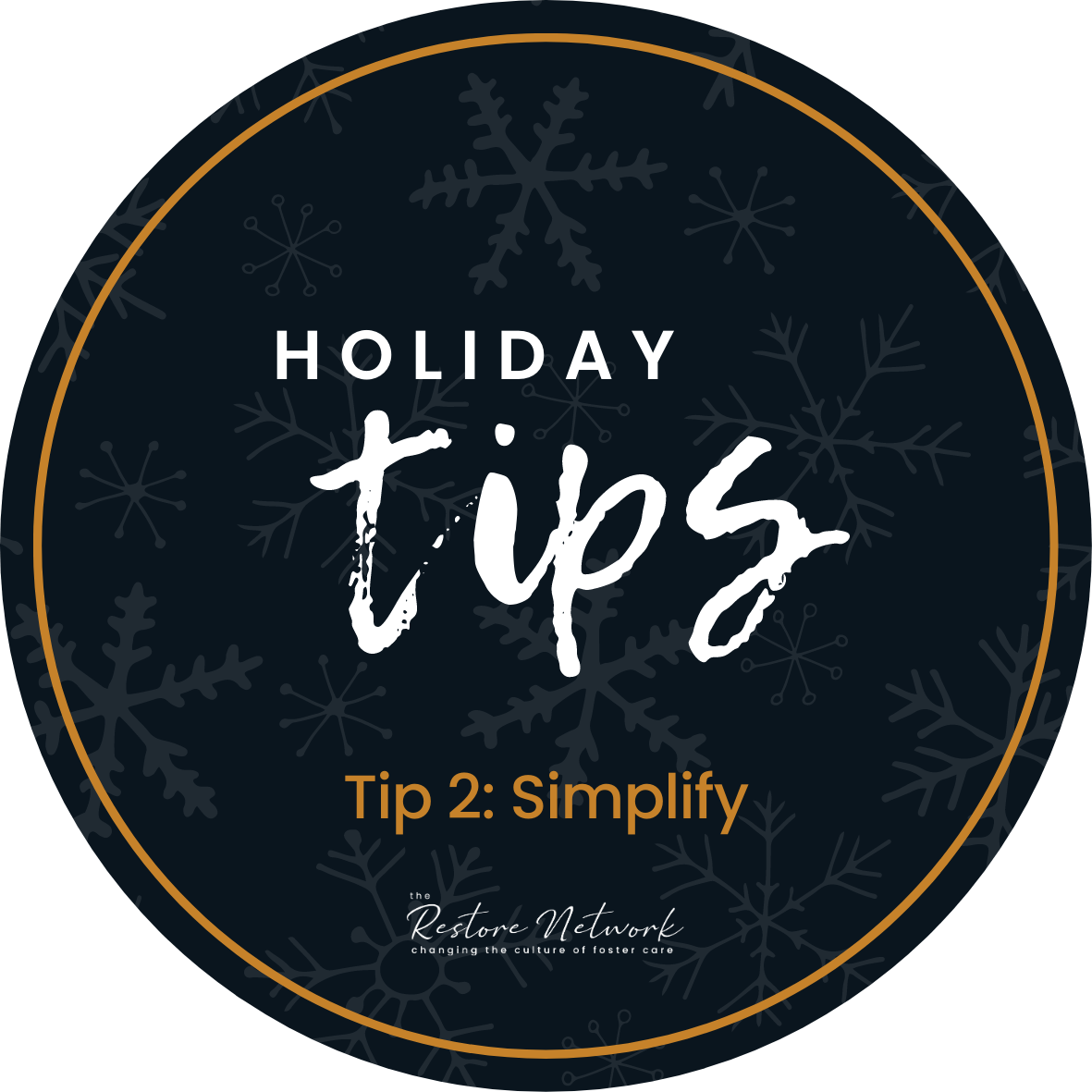If you are a foster parent, you are raising a child who has experienced significant relational harm. Because of this, their bodies and brains are wired differently, and the overwhelming hustle and bustle of the holiday season can just be too much.
While the child in your home begins the journey of feeling safe, trusting your family, and healing from the harm he has experienced, things may need to look a little different for awhile. And that includes the holidays. Especially if the child has recently joined your family and you haven’t had lots of time before your first holiday comes around.
Simplifying your holiday season and making the most important things the priority can go a long way to helping your entire family be successful this year. And what better year than 2020 to give it a try—we may be forced to stay home a bit more anyways!
Here are a couple of questions to ask yourself:
1. Am I asking my child to participate in holiday activities that set him up to fail? For instance, standing in a crowded mall line to sit on Santa’s lap may be really inappropriate for a child who struggles with sensory overload or whose fear response system activates more easily in new situations he perceives as a threat. You may need to postpone or be creative with some favorite holiday traditions until your child is able to be more successful.
2. Am I asking my child to participate in something that I really love but won’t work for him? Consider then how you can still enjoy these activities alone, with your spouse, or another child in the family, avoiding fights or tears with the child who struggles. You don’t have to give up everything you love about this season but you may need to reconsider who you bring along with you!
3. Is it just one particular child in the family who seems to struggle? It’s okay to consider alternative plans for a child who just isn’t in a place where he can make it through a specific holiday tradition. The key is that this isn’t perceived by the child as a punishment or isolation from the family (something our children will feel more acutely than other children). For instance, maybe one of your children gets very hyperactive and overwhelmed when he is in new situations with people he doesn’t know. But there is a holiday party you go to every year that is your family’s favorite holiday tradition and it means a lot to the rest of you. Instead of bringing the child with you and setting yourself up for a challenging evening together, why not ask the grandparents if they can put together a special evening at their home for the child instead? That way everyone in the family has their needs met and enjoys their evening. Or maybe your family would best enjoy the holiday season by doing one-on-one holiday activity dates with your children, instead of taking the whole family along!
4. Are we just doing too much? Dragging a child around to many holiday activities and gatherings may not be giving their bodies enough time to rest and regroup. This can lead to meltdowns and behaviors we could have otherwise avoided. A child suffering from years of toxic stress before they came to you is going to have a body that needs more rest. It’s best to spread out the holiday activities and schedule down days in between. Have fun evening plans? Stay home during the day and keep it low-key. Have non-stop Friday plans? Make Saturday a stay-home-in-your-pajamas while watching Christmas movies kind of day. Building this down time into your routine can keep you from overscheduling your family.
5. Are we doing holiday activities no one really cares about? This week, my family and I had a pre-holiday conversation. We recognized that our holidays would be changing this year due to the pandemic but I also wondered if maybe I had deemed some things necessary during the holidays, which might not be as important to the rest of my family. I asked each of my children to give me 5 things they wanted to eat, do, or experience within the holiday season. We made a list and we are going to focus our holiday season on these things. Maybe you need to have these conversations too? If you do, ask each member of your family (including the adults!) for their top 3-5 things that they enjoy experiencing. Use that list to make a holiday bucket list of sorts and prioritize those things that matter to your family.
Next week’s tip: Provide predictability and structure
